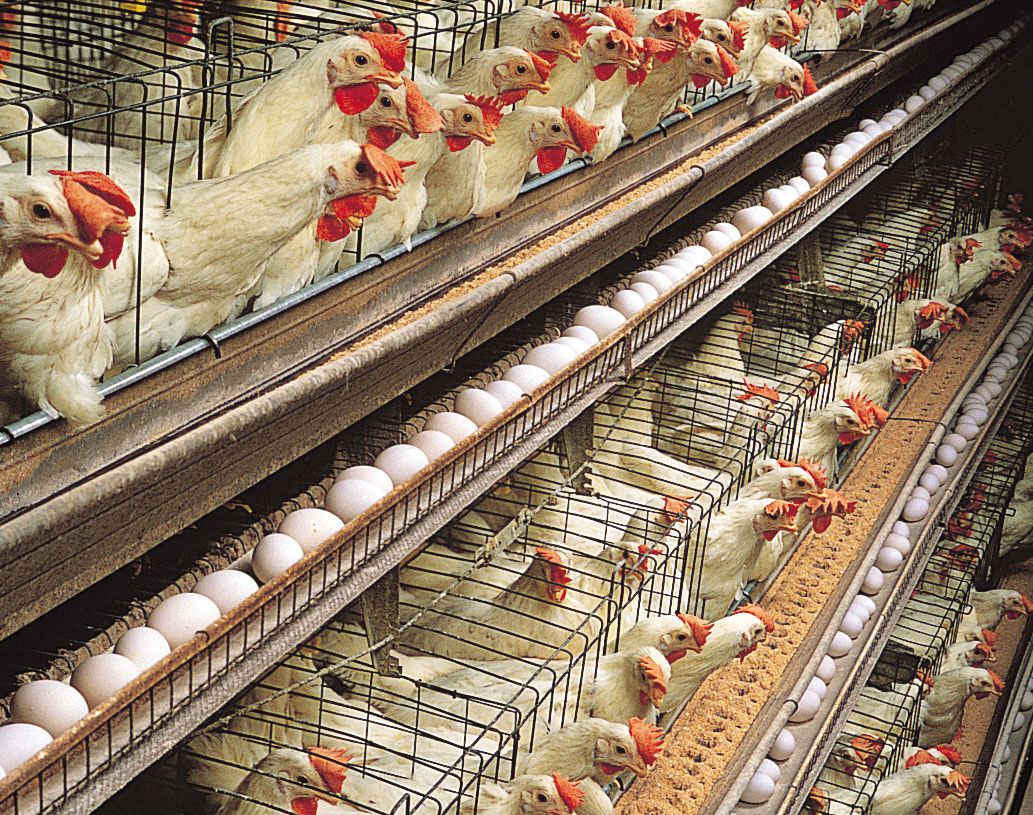If you’re looking to add variety to your poultry husbandry, consider fresh rooster eggs! Rooster eggs offer a unique and delicious alternative to the more common hen eggs. These eggs are a great way to diversify your farm and give your chickens something new to enjoy. Not only are they tasty and nutritious, but they also add a fun and interesting element to your poultry keeping. Plus, they’re a great source of income for farmers looking to expand their business. So why not give rooster eggs a try? You and your chickens are sure to love them!
What are Rooster Eggs?
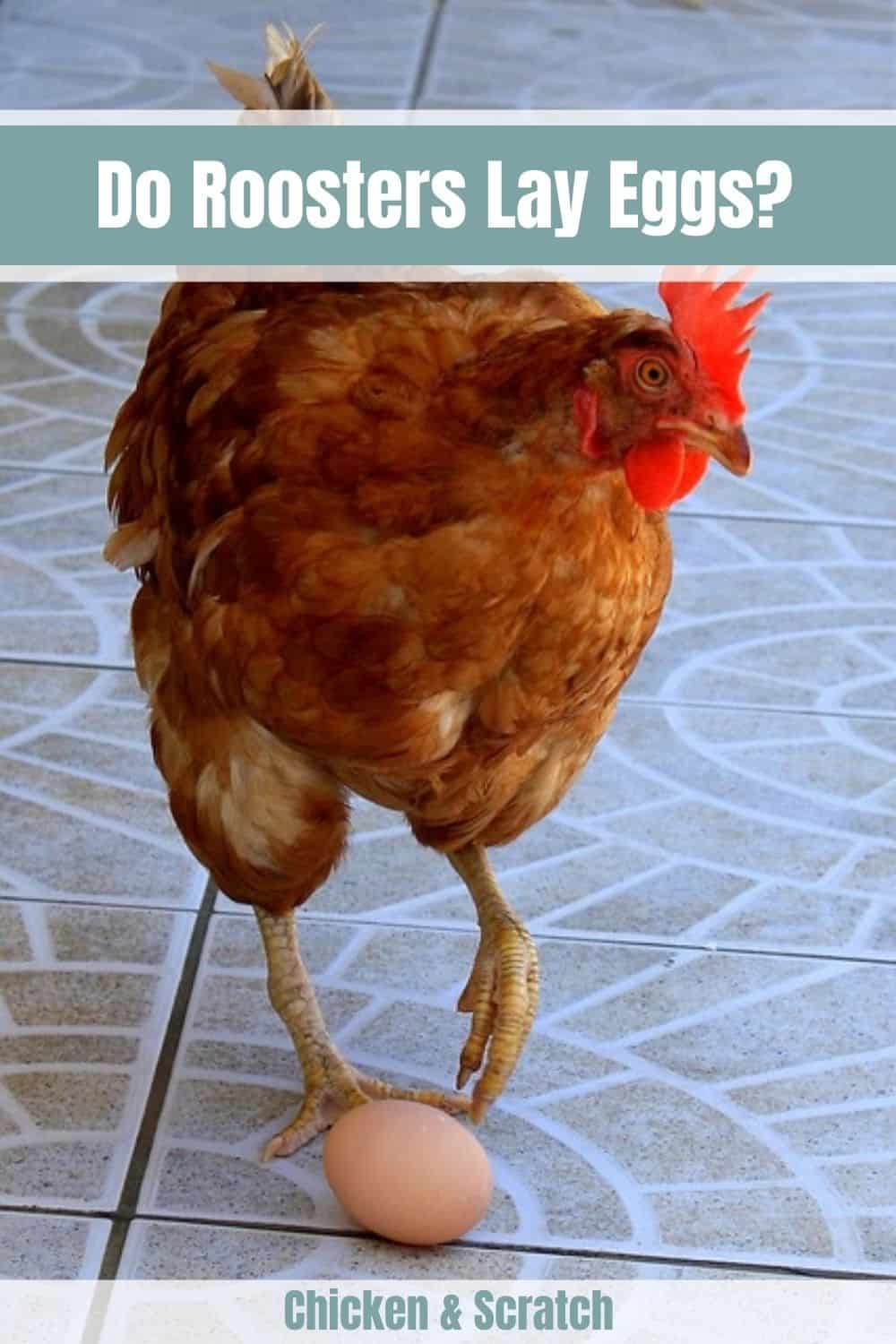
Rooster eggs are eggs laid by male chickens. Contrary to popular belief, roosters are capable of laying eggs. Although roosters do not lay eggs as frequently as hens, it is possible for them to produce eggs.
- Roosters can lay eggs, but they are infertile and will not hatch
- The eggs laid by roosters are smaller than those laid by hens
- Roosters lay eggs due to the increase of hormones in their bodies
- Roosters can lay eggs year-round, but their frequency of laying eggs decreases in the winter months
- Rooster eggs have a different taste than hen eggs, with a richer, creamier flavor
Adding fresh rooster eggs to your chicken husbandry can be a delightful experience. Rooster eggs can be used in baking and cooking in the same way as hen eggs, and the unique taste can be a delightful addition to your culinary creations. Rooster eggs are also a great source of protein, and their smaller size means that they are perfect for snacking.
What is the Difference Between Rooster Eggs and Chicken Eggs?
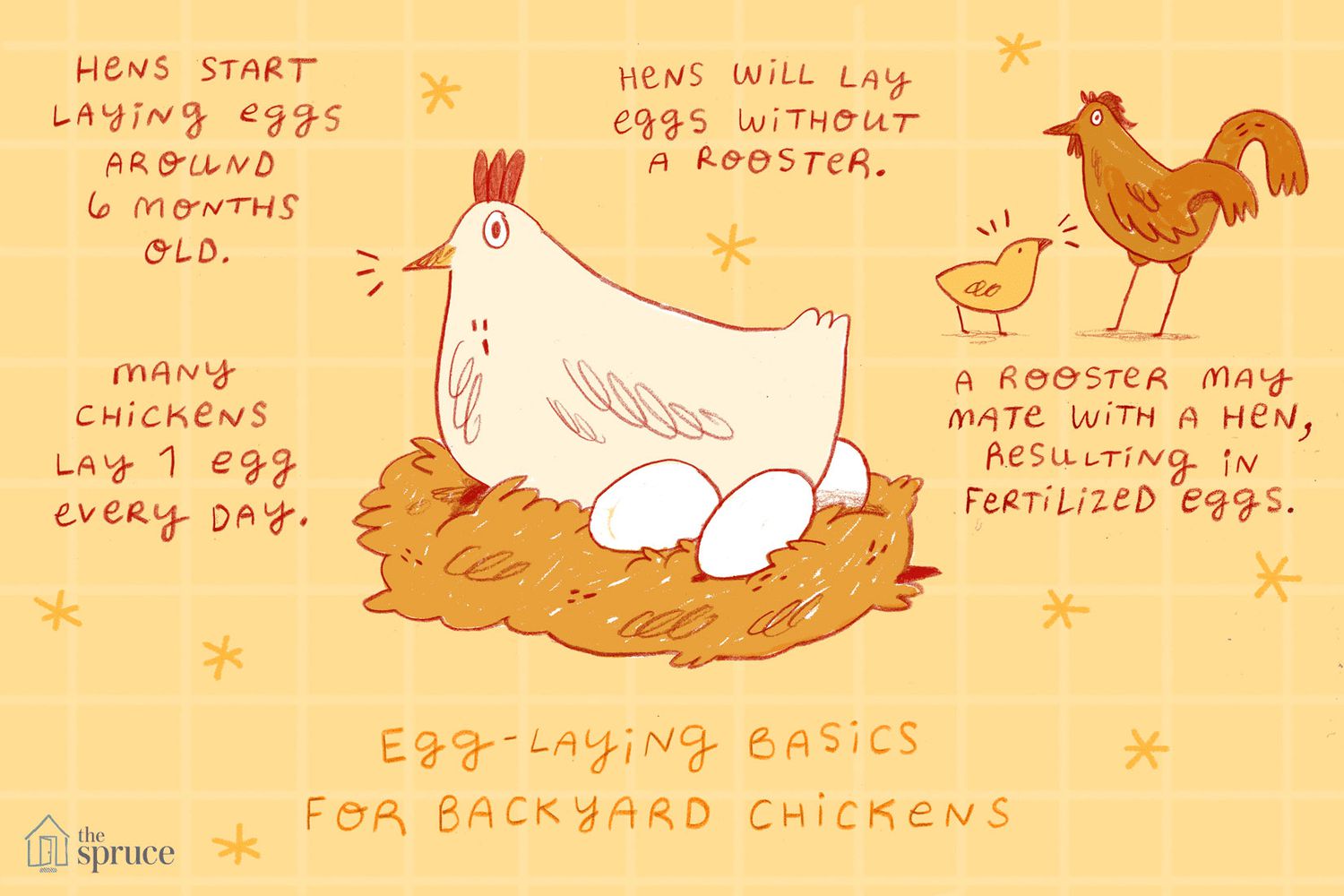
When it comes to eggs, many people assume that all eggs laid by chickens are the same, but this is not the case! Rooster eggs are an often overlooked delicacy that can be a great addition to any chicken husbandry. Rooster eggs differ from chicken eggs in several ways, including size, shell texture, and taste.
Size
Rooster eggs are typically larger than chicken eggs, with the average rooster egg being about 30% larger than the average chicken egg. This is due to the larger size of a rooster, which allows them to produce larger eggs.
Shell Texture
Rooster eggs have a slightly tougher shell than chicken eggs, making them more resilient when cracked open. This makes them ideal for use in recipes that require a hard-boiled egg, as they are less likely to break and spill their contents.
Taste
Rooster eggs have a richer flavor than chicken eggs, with a slightly more intense taste. This makes them an excellent choice for baking and other recipes that require eggs.
When it comes to adding something special to your chicken husbandry, consider adding rooster eggs to the mix! Rooster eggs are a delightful addition to your egg-laying flock, offering a unique size, shell texture, and taste that can’t be found in chicken eggs.
Do Roosters Lay Eggs?
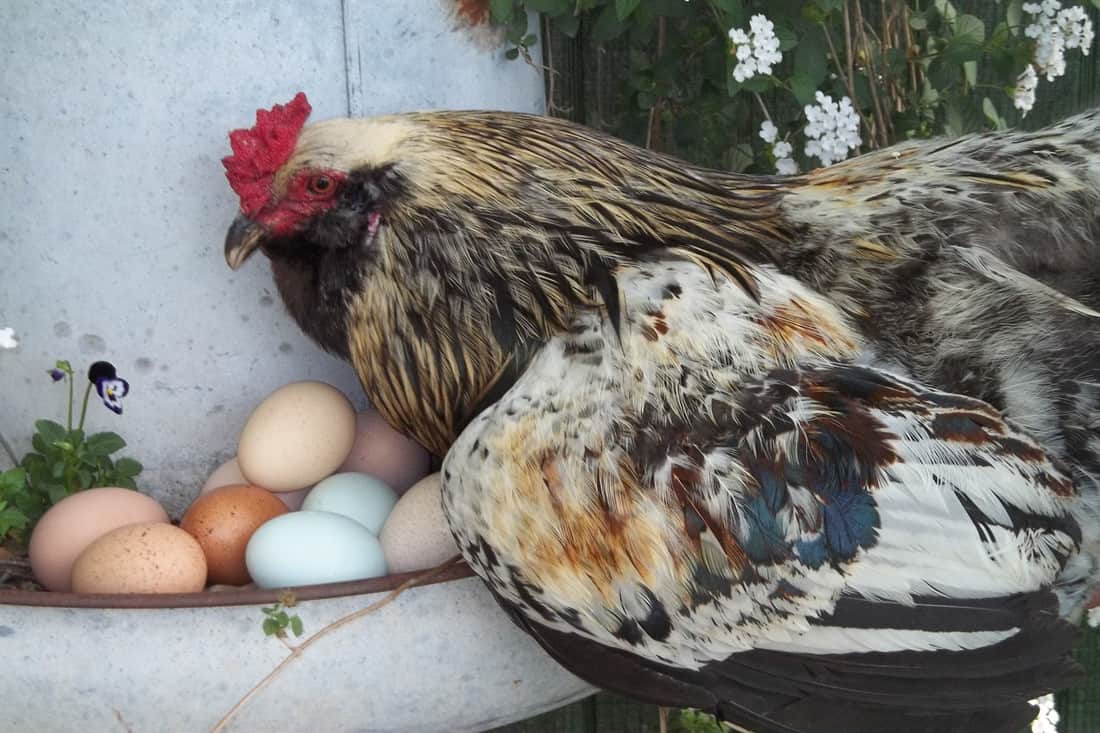
Roosters are an iconic feature of the farmyard, but many people are surprised to learn that male chickens, or roosters, do not lay eggs. Only female chickens, or hens, are capable of laying eggs.
So why do roosters exist? Roosters are essential to a healthy laying flock as they are responsible for protecting the hens, alerting them to danger, and providing breeding services.
What if a rooster lives without hens? A rooster living without hens will still crow, but he won’t have any offspring. Hens must be present in order for the rooster to fertilize their eggs. Without a hen, no eggs can be laid.
Do roosters have any other roles to play? Yes! Roosters are also important for keeping the flock healthy and happy. Roosters provide leadership and protection, alerting hens to potential danger and keeping predators away from the flock.
- Roosters do not lay eggs. Only hens can lay eggs.
- Roosters are essential for protecting hens and providing breeding services.
- A rooster living without hens cannot fertilize eggs.
- Roosters are important for keeping the flock healthy and happy. They provide leadership and protection.
Adding a rooster to your flock of hens is essential for maintaining a healthy, productive laying environment. The presence of a rooster also helps to ensure the safety and well-being of the flock, providing essential protection and leadership. With a rooster in the mix, you can enjoy the delight of fresh rooster eggs!
What Benefits Do Rooster Eggs Offer?
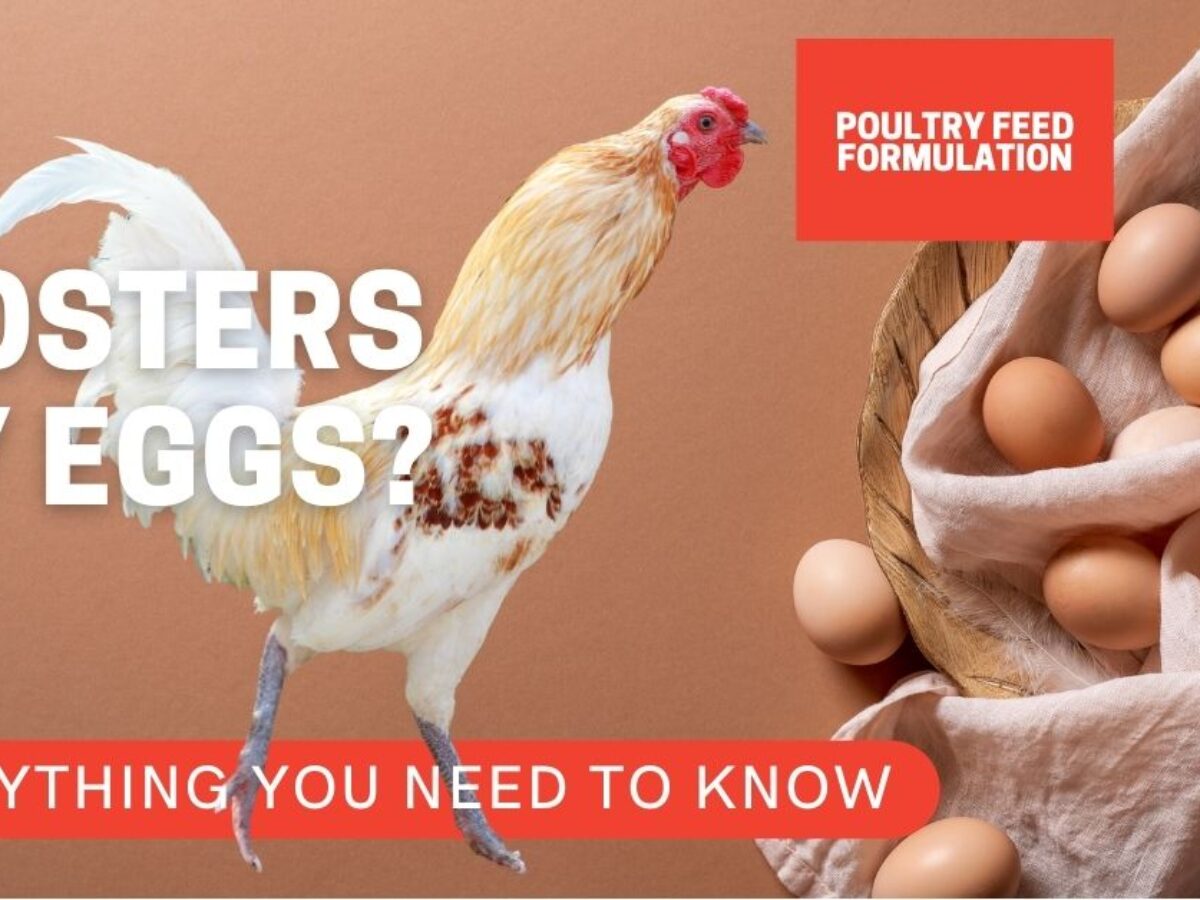
Rooster eggs can provide a delicious and nutritious addition to your chicken husbandry. They are high in protein and minerals, including calcium, phosphorus, and iron. Rooster eggs are also known to contain higher levels of vitamin A and E, as well as omega-3 fatty acids.
Taste-wise, rooster eggs can have a unique flavour compared to regular hen eggs. The yolks are usually much darker yellow and have a richer, creamier taste.
Health benefits of rooster eggs include a lower cholesterol content than regular eggs, as well as other health benefits. Rooster eggs can be a source of dietary fibre, which can help to support digestive health. They are also a source of the essential fatty acids, linoleic acid and alpha-linolenic acid, which can help to support cardiovascular health.
Can rooster lay eggs? A common misconception is that roosters cannot lay eggs. While it is true that roosters do not produce eggs for reproduction, they can lay eggs as long as they have been fed a balanced diet and are healthy. The eggs produced by roosters tend to be smaller and have a higher yolk-to-white ratio than those of hens, but they are still edible and nutritious.
Are Rooster Eggs Safe to Eat?
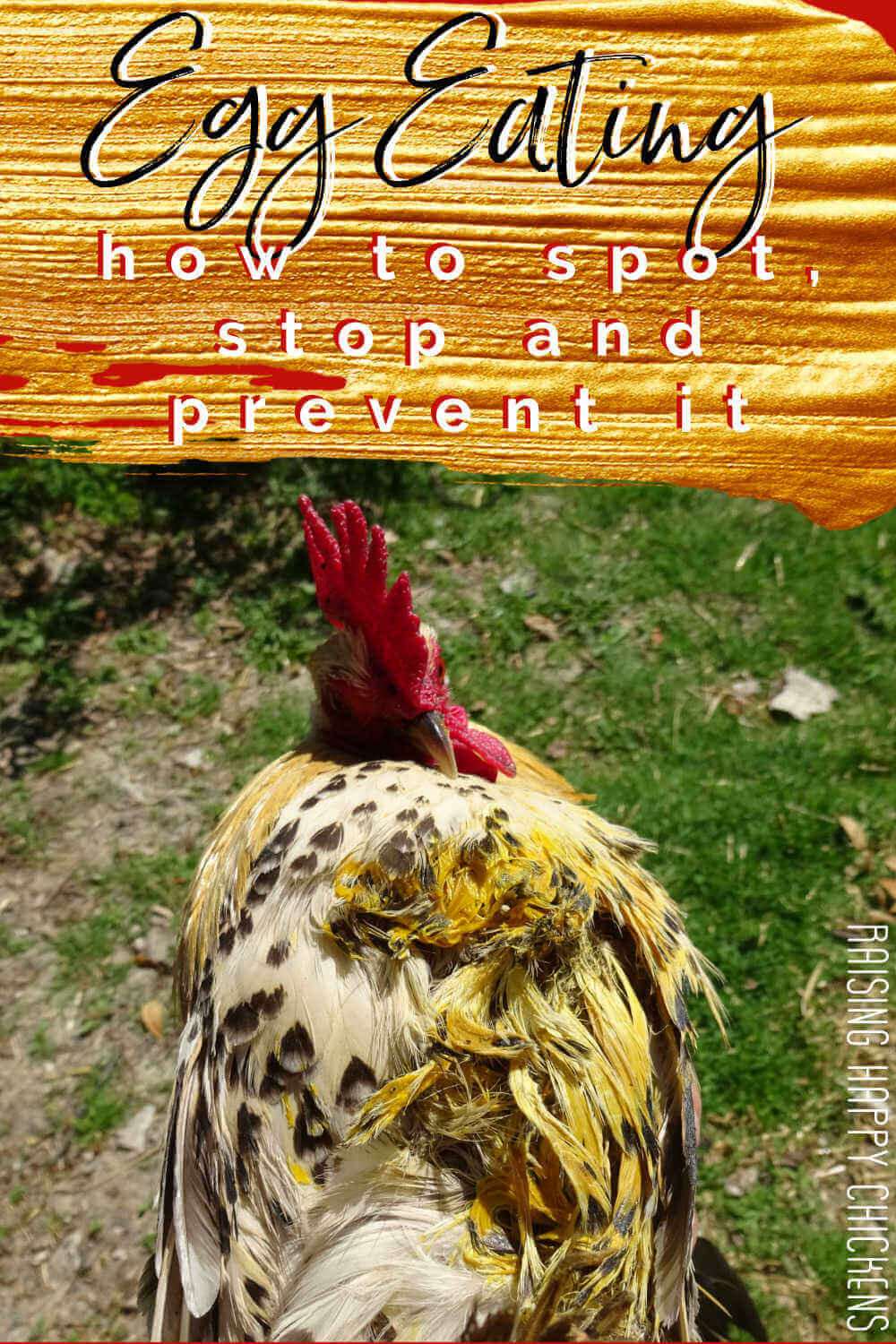
Yes, rooster eggs are safe to eat. Although roosters don’t lay eggs, they are still edible and provide a great addition to your chicken husbandry!
Rooster eggs have the same nutritional value as those from other chickens, although they are slightly larger in size. They are also typically more brightly colored than regular chicken eggs. Rooster eggs have a higher concentration of yolk, which makes them a great source of protein.
When it comes to safety, rooster eggs adhere to the same standards as regular chicken eggs. They should be cooked thoroughly and stored properly to prevent foodborne illnesses. It is also important to note that they should be collected in the same manner as regular chicken eggs.
If you want to add a unique twist to your chicken husbandry, try adding rooster eggs to your repertoire. With their larger size and vibrant color, they make a delicious and nutritious addition to any meal.
How to Incorporate Rooster Eggs in Your Chicken Husbandry?
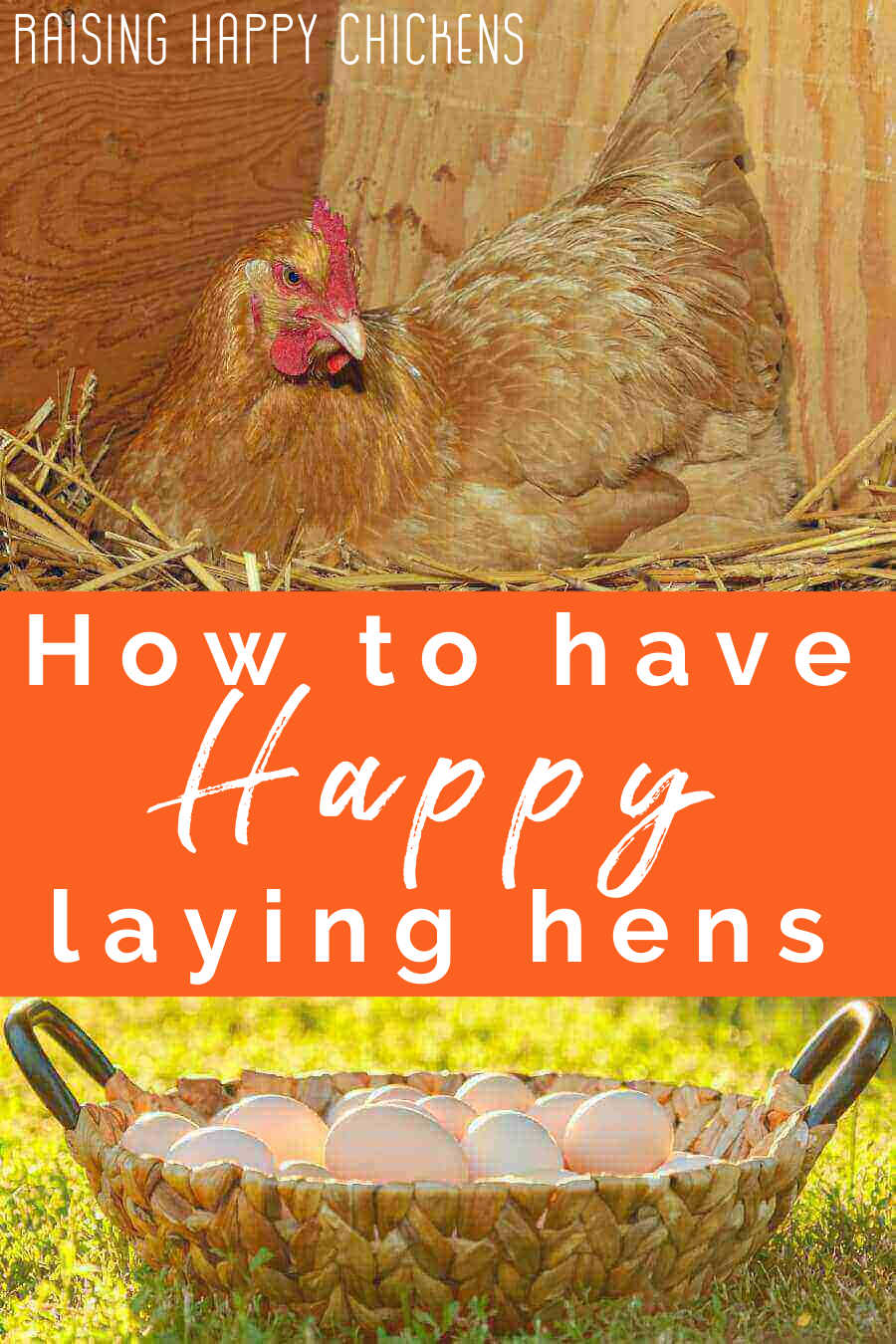
If you’re looking to add some variety to your chicken husbandry, then rooster eggs are a great option. Although they are not as common as regular chicken eggs, rooster eggs can be a delightful addition to your flock. But before you add them to your henhouse, there are a few things you should know about how to properly incorporate them.
1. Understand If Roosters Lay Eggs or Not
The first step is to understand if roosters are capable of laying eggs or not. The answer is no, roosters do not produce eggs. All the eggs that a hen lays are unfertilized, and thus will not hatch. So the eggs you get from a rooster will not be viable for producing chicks.
2. Separate the Roosters and Hens
Once you understand that roosters don’t lay eggs, you need to make sure that they are separated from the hens. This will help prevent the roosters from mating with the hens and potentially spreading disease. You should also make sure that the roosters have enough space to roam and plenty of food and water.
3. Incorporate Rooster Eggs Carefully
Once the roosters are separated, you can start to incorporate their eggs into your chicken husbandry. Rooster eggs tend to be larger and darker than regular chicken eggs. It is important to handle them with care and not mix them in with the hen eggs, as this could cause them to spoil quickly.
4. Monitor Rooster Egg Production
When incorporating rooster eggs into your flock, it is important to monitor their production. Roosters tend to lay fewer eggs than hens, so you should only expect a few eggs per month. If the egg production stops or drops significantly, it could be a sign of a health issue with the rooster and you should take it to a vet for a check up.
5. Enjoy the Rooster Eggs
Once you have followed all the steps, you can enjoy the rooster eggs. They can be used in baking, frying, or any other way you would use regular chicken eggs. Rooster eggs are a unique and delicious addition to your chicken husbandry and can offer a delightful change of pace.
Adding rooster eggs to your chicken husbandry can be a great way to add some variety to your flock. Just make sure you understand that roosters do not lay eggs and that you take the necessary steps to ensure the roosters are separated from the hens. With proper care and monitoring, you can enjoy the unique and delicious eggs that roosters have to offer.
What to Consider When Incorporating Rooster Eggs in Your Chicken Husbandry?
- Egg Quality: Roosters lay eggs that are usually larger and richer in flavor compared to those from hens. However, the eggshells can be thinner and more brittle and the yolks may be darker in color.
- Age of Roosters: Roosters typically start laying eggs at around 6 months of age, but the number of eggs they lay can vary depending on their age and health.
- Fertility: Roosters tend to be less fertile than hens, so you should check the fertility of the eggs before incubating them.
- Nutritional Value: Rooster eggs contain more protein and fat than hen eggs and are a great source of essential vitamins and minerals.
- Storage: Rooster eggs should be stored in the refrigerator to maintain quality and freshness.
- Handling: Rooster eggs should be handled with care as the shells can be fragile and easily broken.
- Incubation: Rooster eggs take longer to incubate than hen eggs, typically about 21 days.
- Hatching: Rooster eggs require a higher humidity level during hatching than hen eggs and should be monitored closely to ensure a successful hatch.
Frequently Asked Questions
What is the Nutritional Value of Fresh Rooster Eggs?
Fresh rooster eggs provide a great source of protein, fat, vitamins, minerals, and antioxidants. They are high in selenium, iron, and vitamin B6, as well as essential fatty acids. Additionally, rooster eggs are a good source of choline, which helps protect against certain neurological diseases. On average, a single rooster egg contains 6 grams of protein, 5 grams of fat, and 1 gram of carbohydrates.
How do I store Fresh Rooster Eggs?
Fresh rooster eggs should be stored in a cool, dry place with an ambient temperature of around 50-60°F. To prevent them from cracking or breaking, they should be kept in a box filled with wood shavings or straw. Additionally, the eggs should be kept in an upright position and rotated every few days to avoid them developing air cells. It is important to keep the eggs free of any dirt or debris and to store them away from direct sunlight. Properly stored in this manner, fresh rooster eggs can last up to three weeks.
What is the shelf life of fresh rooster eggs?
Fresh rooster eggs have a shelf life of up to 5 weeks if stored in a cool, dry place. They can be stored in the refrigerator for up to 10 weeks. Here are the key points to consider when storing fresh rooster eggs:
- Keep them in a cool, dry place.
- Store them in the refrigerator.
- Monitor the temperature and humidity levels.
- Check for cracks in the eggshells.
- Discard eggs that are damaged or have unusual odors.
Fresh rooster eggs are an excellent source of nutrition and protein, and can be a delightful addition to your chicken husbandry. With proper storage and handling, you can enjoy the freshness and delicious taste of fresh rooster eggs for up to 10 weeks.
What is the Difference Between Store-Bought Eggs and Fresh Rooster Eggs?
Freshness: Store-bought eggs are typically a few weeks old, while fresh rooster eggs are laid immediately.
Nutrition: Store-bought eggs contain a certain amount of nutrients, while fresh rooster eggs contain more vitamins and minerals due to their quick consumption.
Taste: Store-bought eggs usually have a bland taste, while fresh rooster eggs have a richer flavor.
Appearance: Store-bought eggs have a uniform appearance, while fresh rooster eggs have a more natural look.
Safety: Store-bought eggs are refrigerated and inspected for safety, while fresh rooster eggs have not gone through the same process.
Are There Any Health Benefits To Eating Fresh Rooster Eggs?
Fresh rooster eggs contain a range of essential vitamins and minerals, including vitamin A, iron, folate, and choline. They are also a good source of protein, with roughly 6g per egg. Eating fresh rooster eggs can help to boost immunity, improve vision, and may even help to reduce the risk of heart disease. Additionally, they are low in calories and fat, making them a healthier alternative to other types of eggs.
Conclusion
Fresh rooster eggs can be a delightful addition to any chicken husbandry. They are a great source of nutrition, come in a variety of colors, and are easy to obtain. With proper care, these eggs can provide a healthy and delicious addition to your chicken flock.
